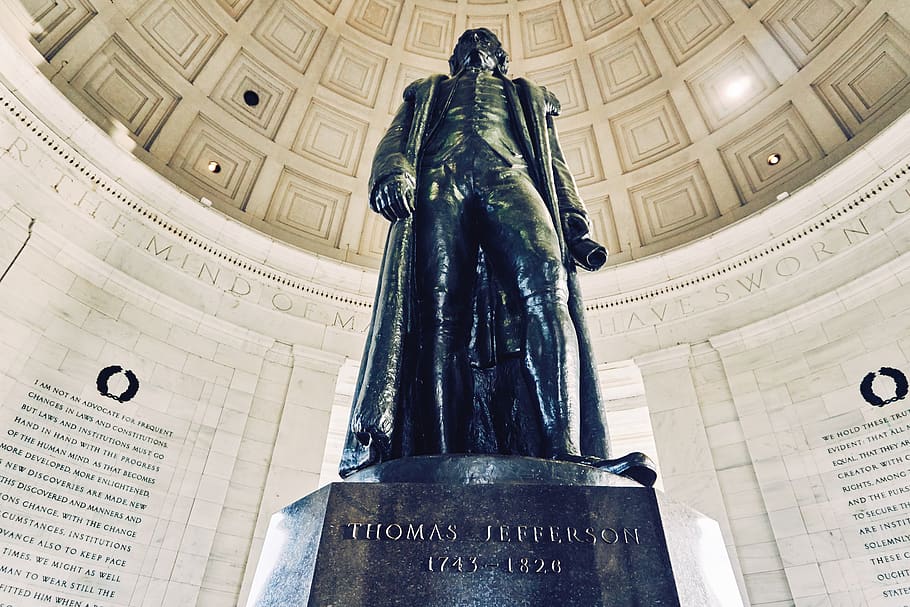Thomas Jefferson (April 13, 1743 – July 4, 1826) was an American statesman, diplomat, lawyer, architect, philosopher, and Founding Father who served as the third president of the United States from 1801 to 1809. Among the Committee of Five charged by the Second Continental Congress with authoring the Declaration of Independence, Jefferson was the Declaration’s primary author, writing it between June 11 and June 28, 1776, at a three-story residence at 700 Market Street in Philadelphia.
Following the American Revolutionary War and prior to becoming the nation’s third president in 1801, Jefferson was the first United States secretary of state under George Washington and then the nation’s second vice president under John Adams.

Among the nation’s Founding Fathers, Jefferson is considered unmatched in his intellectual depth and breadth. His passionate writings and advocacy for human rights, including freedom of thought, speech, and religion, were a leading inspiration behind the American Revolution, which ultimately gave rise to the American Revolutionary War, American independence, and the United States Constitution.
Globally, Jefferson’s ideas were influential in shaping and inspiring the Age of Enlightenment, which proved transformational globally in the late 17th and 18th centuries. He was a leading proponent of democracy, republicanism, and individual rights, and produced formative documents and decisions at state, national, and international levels.

Jefferson and Federalist John Adams became friends as well as political rivals, serving in the Continental Congress and drafting the Declaration of Independence together. In the 1796 presidential election between the two, Jefferson came in second, which according to electoral procedure at the time, made him vice president to Adams. Jefferson challenged Adams again in 1800 and won the presidency. After his term in office, Jefferson eventually reconciled with Adams and they shared a correspondence that lasted fourteen years.

As president, Jefferson pursued the nation’s shipping and trade interests against Barbary pirates and aggressive British trade policies. Starting in 1803, he promoted a western expansionist policy with the Louisiana Purchase, which doubled the nation’s claimed land area. To make room for settlement, Jefferson began the process of Indian tribal removal from the newly acquired territory. As a result of peace negotiations with France, his administration reduced military forces. In 1807, American foreign trade was diminished when Jefferson implemented the Embargo Act in response to British threats to U.S. shipping. The same year, Jefferson signed the Act Prohibiting Importation of Slaves. In 1785, Jefferson authored Notes on the State of Virginia, considered perhaps the most important American book published before 1800. Jefferson championed the ideals, values, and teachings of the Enlightenment.
According to en.wikipedia.org; whitehouse.gov. Source of photos: internet







